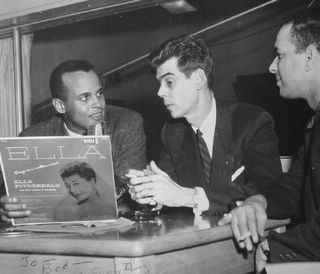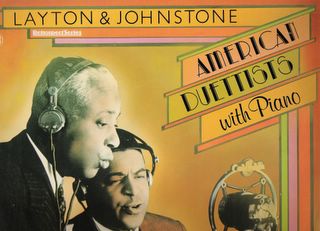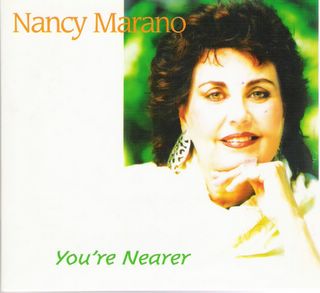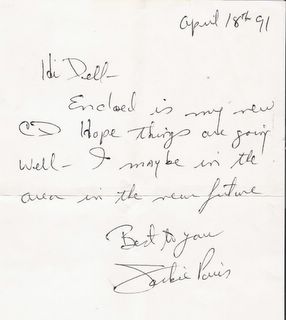Recent emails to (old) friends recycled and blogified.
Bob:
Most likely "djbob@____" is none other than you, Bob Turley, with whom I used to work as a deejay at WKAZ, Charleston back in the early 1960s. The "Big K" as it were. I cannot begin to tell you with how much fondness I look back on the time we worked together at that station. Below my signature herein* is something I wrote a few years back on a net site devoted to 'KAZ.
If I have reached the "wrong" Bob Turley, well then in the immortal words of Emily Littella: "Never mind." Otherwise. . .
I was inspired to write you just now while I was surfing around the net listening to old radio jingles (actually with a purpose in mind, but that's another story). Suddenly all the WKAZ jingles came rushing back to me. No doubt cut in Dallas at PAMS or some other similar outfit in that area. A hotbed of such activity
I can still vividly recall the good stuff that you jumped on when it was released, especially Si Zentner's
Up a Lazy River. God how you loved that! And
Judy Garland at Carnegie Hall.If you happen to have any airchecks of your work on 'KAZ, I would love to have a chance to hear them someday.
Good luck to you. Hope this finds you with the world in a jug and the stopper in your hand.
Best,
Bill
* Here's who I remember at 'KAZ: Jim Taylor, Carl Knight, Neil Boggs (news, natch), Gloria Barron (wife of local radio personality Bob Barron) was traffic manager, the night engineer was Doug Browning. But most of all I remember dee-jay Bob Turley. The things I tend to recall from my youth when I go back and double check on them turn out to have been remembered with a fair degree of accuracy. And what I remember about Bob is that he was simply and inarguably GREAT! Case closed. The emphasis between records spun was definitely on comedy, and Bob---I recall---was up there with the best of 'em like Stan Freberg, and Bob and Ray. Again, I am pretty sure I am right about this.
Bob was so far out when he was at the peak of his powers that it was, as they say, "too hip for the house," i.e. Charleston. Or pretty much anywhere else for that matter. And so, eventually, Bob moved more and more behind the scenes and became a program director at 'KAZ and was no longer on the air at all. I think that is the way it played out. I have not lived in Charleston for more than thirty years, but I remember it as being a great radio town.
I can still recall the theme song that Bob used at one time: "
The Duke" (mp3 link for a limited time only) from the Miles Davis/Gil Evans album, "Miles Ahead." For a morning drive time radio show, it simply does not get any hipper than that. What a beautiful sound to wake up to!
Then there were all those dozens and dozens of tape cartridges that he manipulated with extraordinary dexterity to punch in all of these outrageous sound effects, and voices. If you "put me under" I could probably remember a lot more, but one I recall was a clip of Tallulah Bankhead from the "Guest Star" LP series: "Do you have a makeup kit on this ship, darling?" Then Bob would jump back in with an ad-libbed response, then would segue into a commercial, or whatever. I do recall that he was very well-liked and pretty much ruled the place, but was forever getting called into the very nice Don Hays' office (he was the station director) for a mild wrist slapping.
Oh, and there was his radio gossip columnist, "Louella O. Louella" and, um. . .like I say, I probably need to be put into a deep sleep before I. . .oh, and there was "Flamin' Mame," a stripper played by Gloria Barron. Sometimes I was given the honor of doing a bit of improv on Bob's show after I was off-duty, but Gloria and Bob were practically a radio comedy team. All of us were sometimes called into service. Just depended on Bob's inspiration of the moment. It was all totally off the cuff. For a kid who practically grew up listening to this stuff, it was quite an honor to actually have become a part of wild and wacky radio show.















